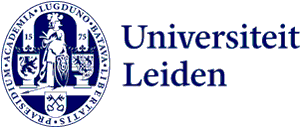
Huge advances could be made in the treatment of patients with childhood trauma
There’s a lot that goes wrong in the treatment of patients with PTSD caused by childhood trauma. Endowed professor Maartje Schoorl wants to resolve this by bringing scientific research closer to the practice. Inaugural lecture on Friday 29 April.
Patients with severe mental illness, therapists who are reluctant to use certain therapies, students who have to go through a slow and fragmented training programme: it’s not a rosy picture that Maartje Schoorl, Professor by Special Appointment of Psychological Professional Training in Mental Health Care at Leiden University, paints about her field. Schoorl has many different roles in the treatment of people who have Posttraumatic Stress Disorder (PTSD) as a result of childhood trauma (see below). As a clinical psychologist she treats patients, as a researcher she conducts research into therapies and their effects and as a head trainer she is responsible for the post-master’s training as a healthcare psychologist (GZ-psycholoog) and clinical psychologist.
‘Patient treatment falls short because therapists often fail to diagnose PTSD or avoid using certain treatments.’
Major problems
At that point where treatment, research and education meet, she can see a number of major problems. ‘First: patient treatment falls short because therapists often fail to diagnose PTSD or avoid using certain treatments. They are afraid that such therapy, such as returning the victim to the moment when the trauma occurred, will have an adverse effect.’ Schoorl conducted research into three specific PTSD treatments and discovered they are actually very effective.
Second: there is a gap, in terms of both subject matter and time, between the master’s in psychology and the post-master’s training in clinical psychology. Between the master’s and the clinical psychology training, there is currently a waiting period of seven years, which is filled by gaining practical experience. During that time psychologists (basispsychologen) gain a wide range of experience. When they finally get on that training programme, they then meet colleagues and trainers who have different views on the profession. Schoorl sometimes calls students ‘the children of divorced parents: their father is the practice and their mother academia.’
Hope
Nevertheless, Schoorl sees rays of hope. ‘Our research into three forms of PTSD treatment, the IMPACT study, shows that patients benefit greatly from these therapies. When I saw the first results of the study, I had shivers down my spine. In 16 sessions there was an effect in people who had had symptoms for 15 years.’ This research also won Schoorl and her team the Best Paper of the European Journal of Psychotraumatology published in 2021. ‘So the scientific value of this research is also recognised at a European level, which makes me hopeful.’
‘Then someone says in an evaluation: “I’m taking good care of myself again. I’m looking for a job and am there for my children again.” At times like that, I have an amazingly cool job.’
As a therapist, she also has positive moments when patients tell her how much better they are doing after treatment. ‘Then I show someone out at 10.30 in the morning who has said in an evaluation: “I’m taking good care of myself again. I’m looking for a job and I’m there for my children again.” At times like that, I have an amazingly cool job.’
Odd woman out
With regard to training, much still needs to be done: bridging the gap between the master’s and the specialisation, and harmonising the different specialisation training courses in the country. ‘But I can see a lot of enthusiasm and commitment to getting this done, particularly here at the Faculty of Social and Behavioural Sciences.’
Schoorl sometimes feels a bit of an ‘odd woman out. I’m a clinician among researchers, which isn’t very common.’ In the coming years, she will work in her various roles to close the gap between science and practice.
Childhood trauma and consequences
According to an estimate from 2019, between three and twelve per cent of children in the Netherlands experience physical violence or sexual abuse. That is about one child per class. As a result of this trauma, children can suffer from all sorts of problems, with their physical and mental health. The physical problems include asthma and skin disorders and the mental health problems include chronic depression, addiction or post-traumatic stress disorder (PTSD). PTSD is characterised by symptoms such as re-experiencing and avoidance. People experience nightmares and flashbacks, avoid triggers related to the trauma, develop negative ideas about themselves and the world, and are overly alert, which leads to poor sleep and angry outbursts, for example.
Text: Jan Joost Aten
Image: Michelle Janssen
